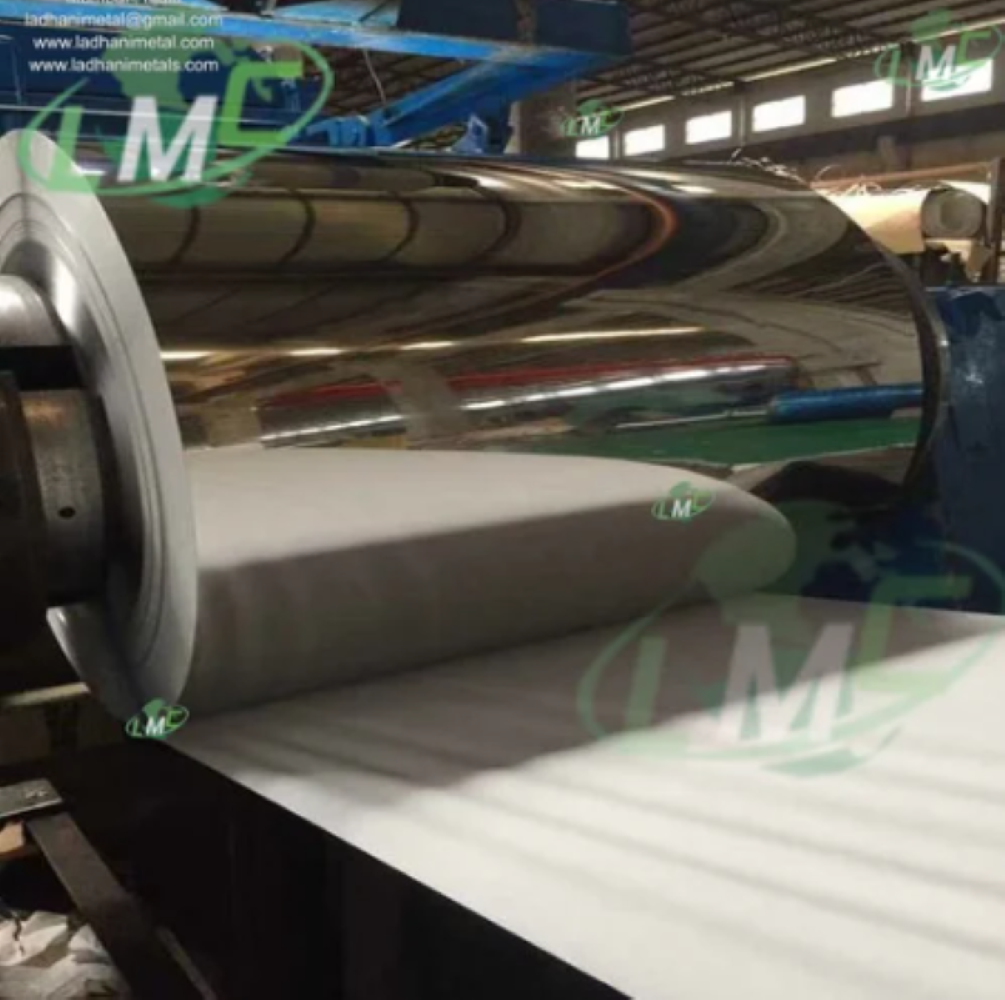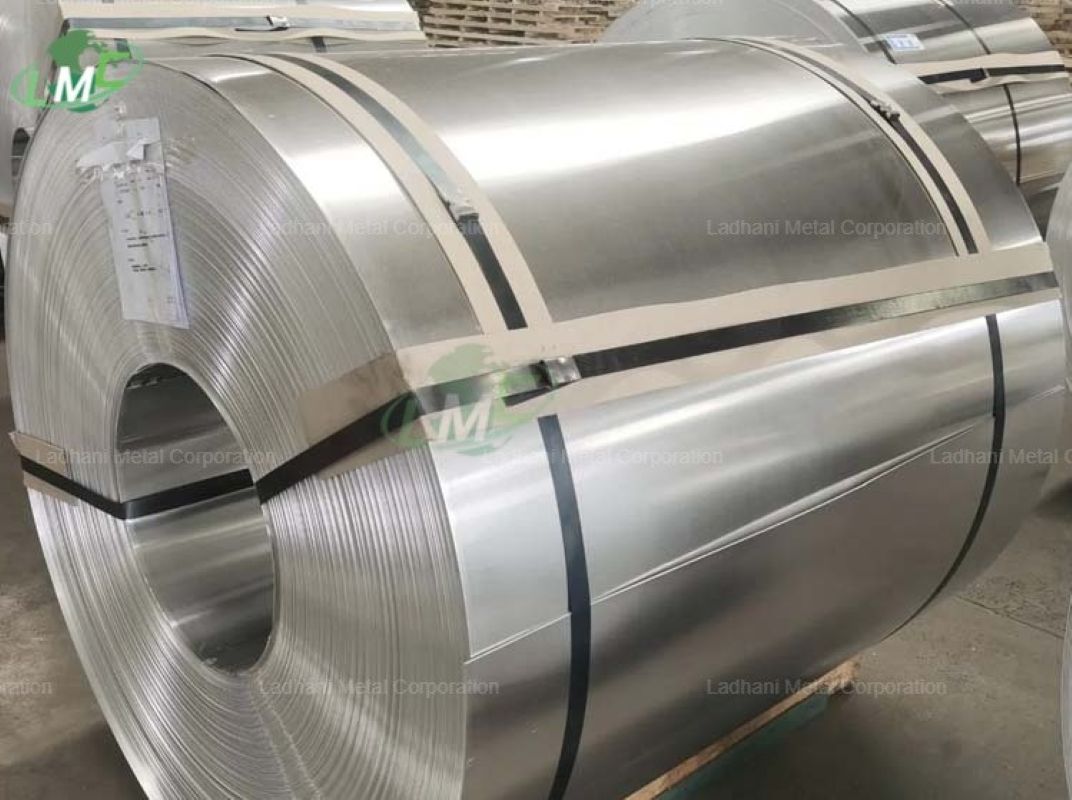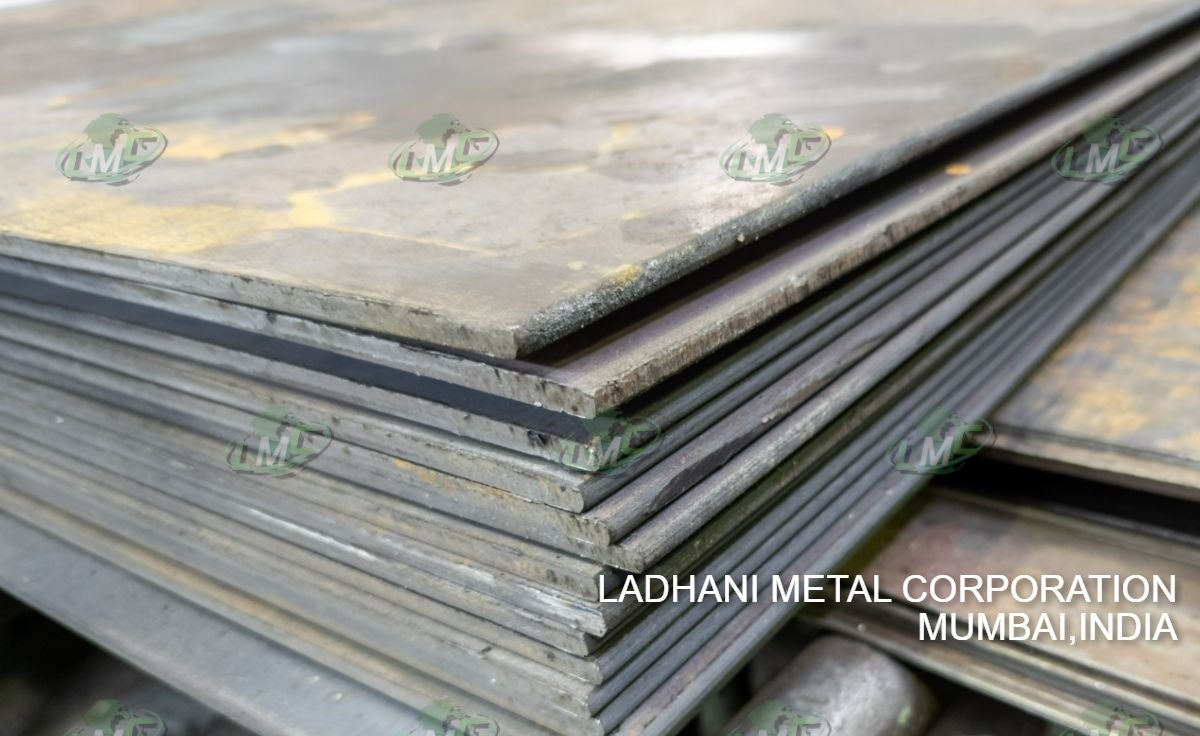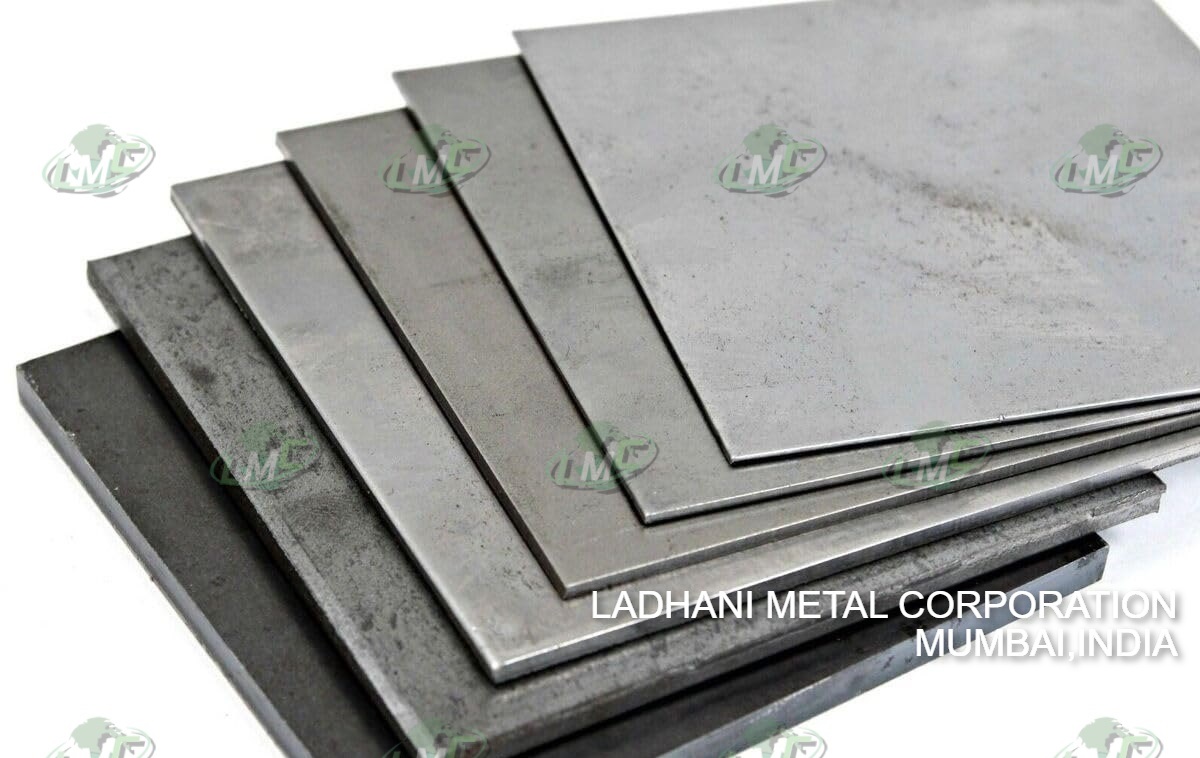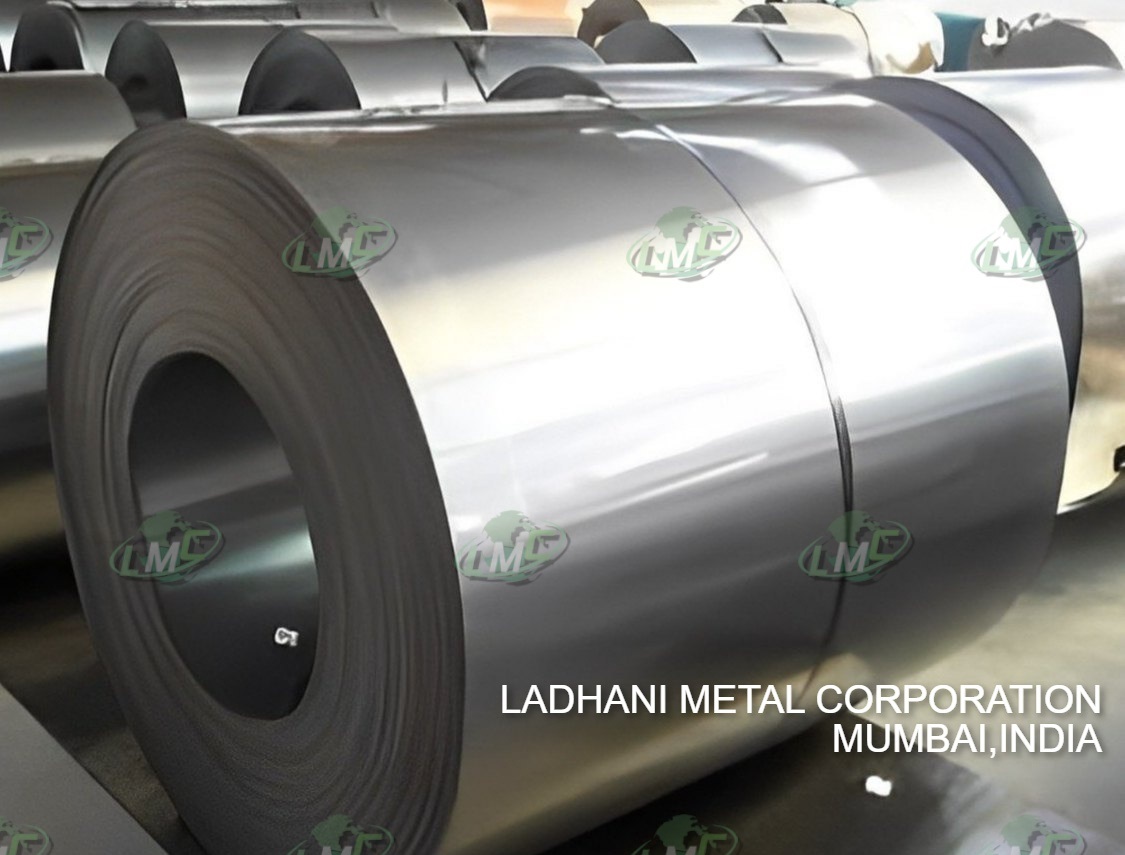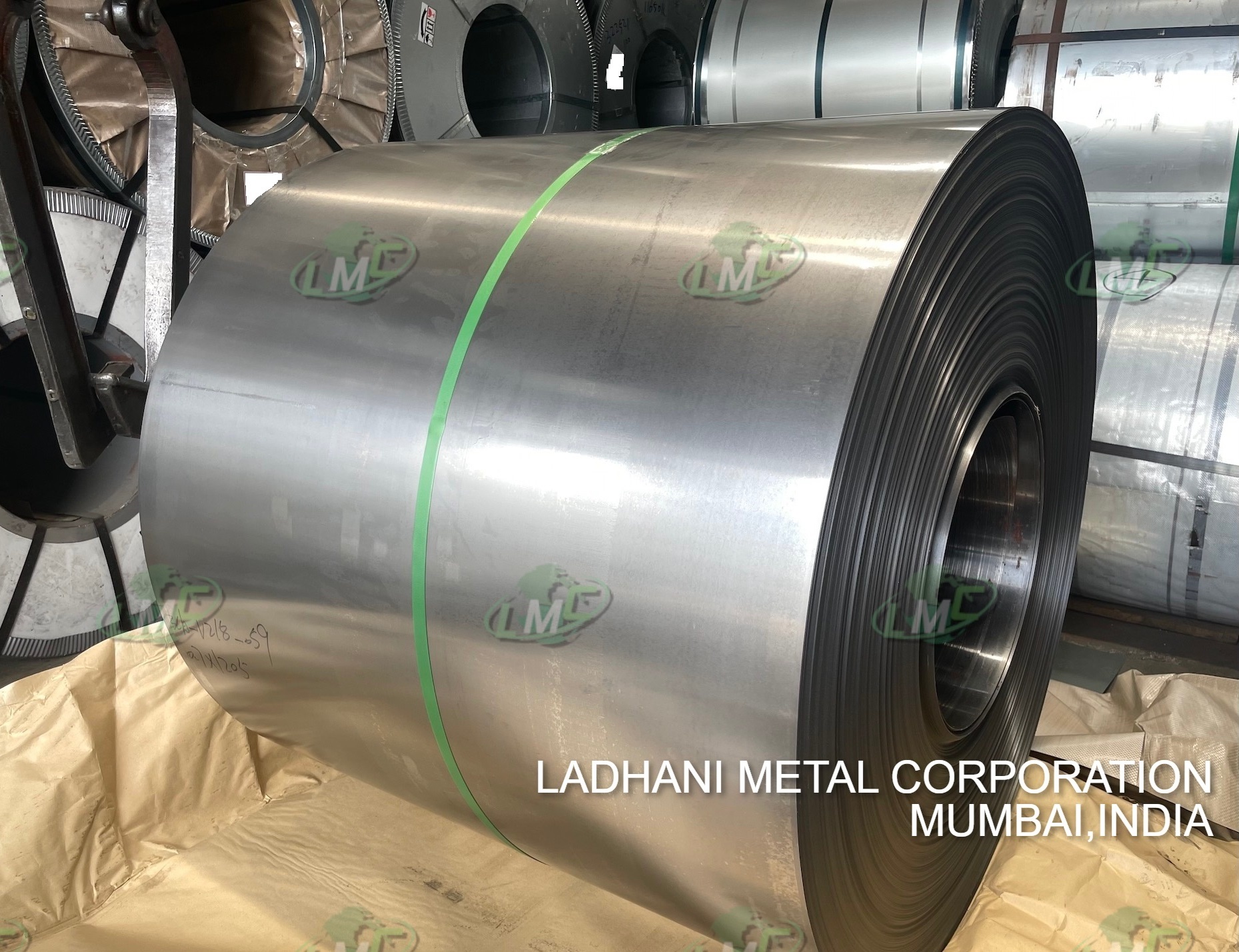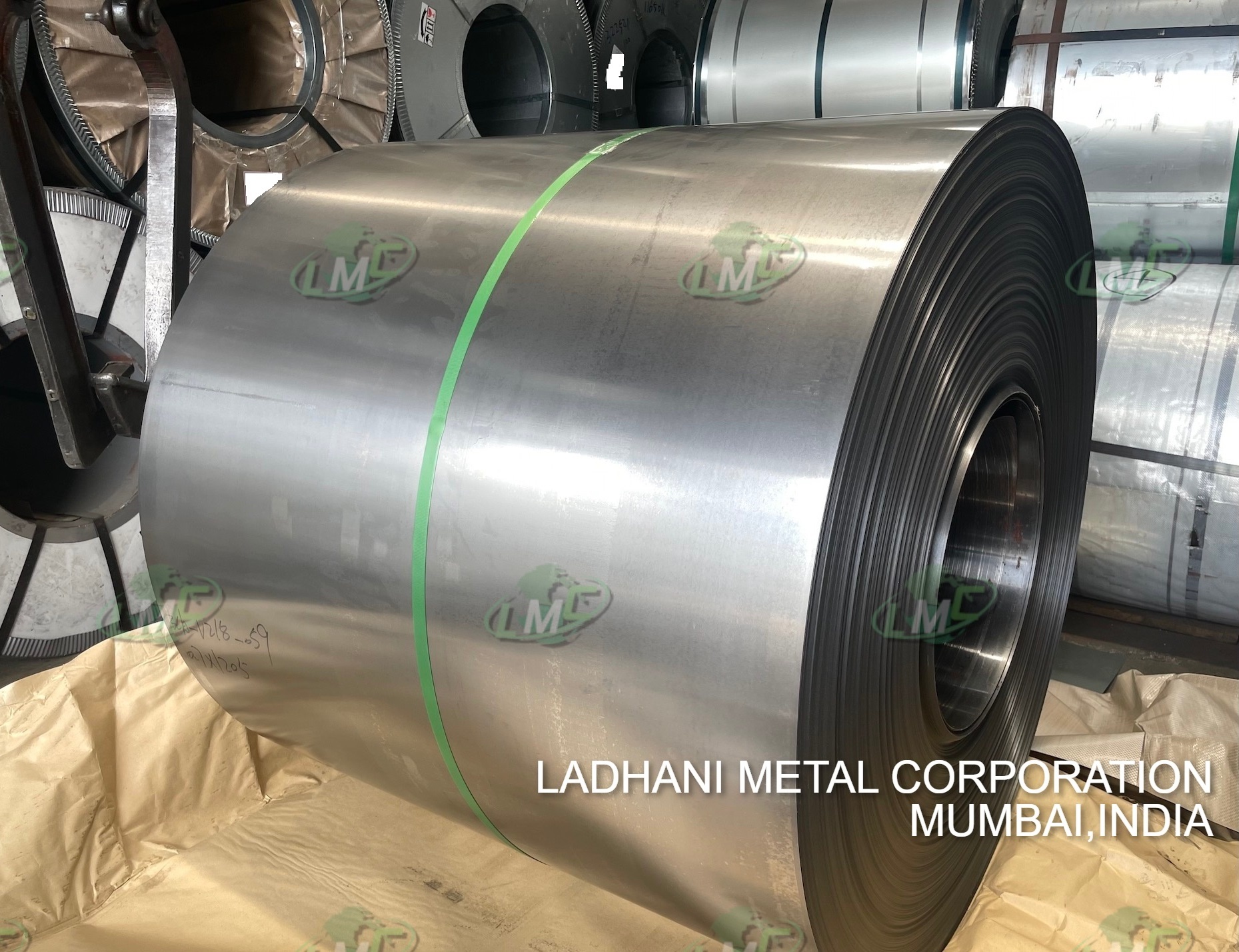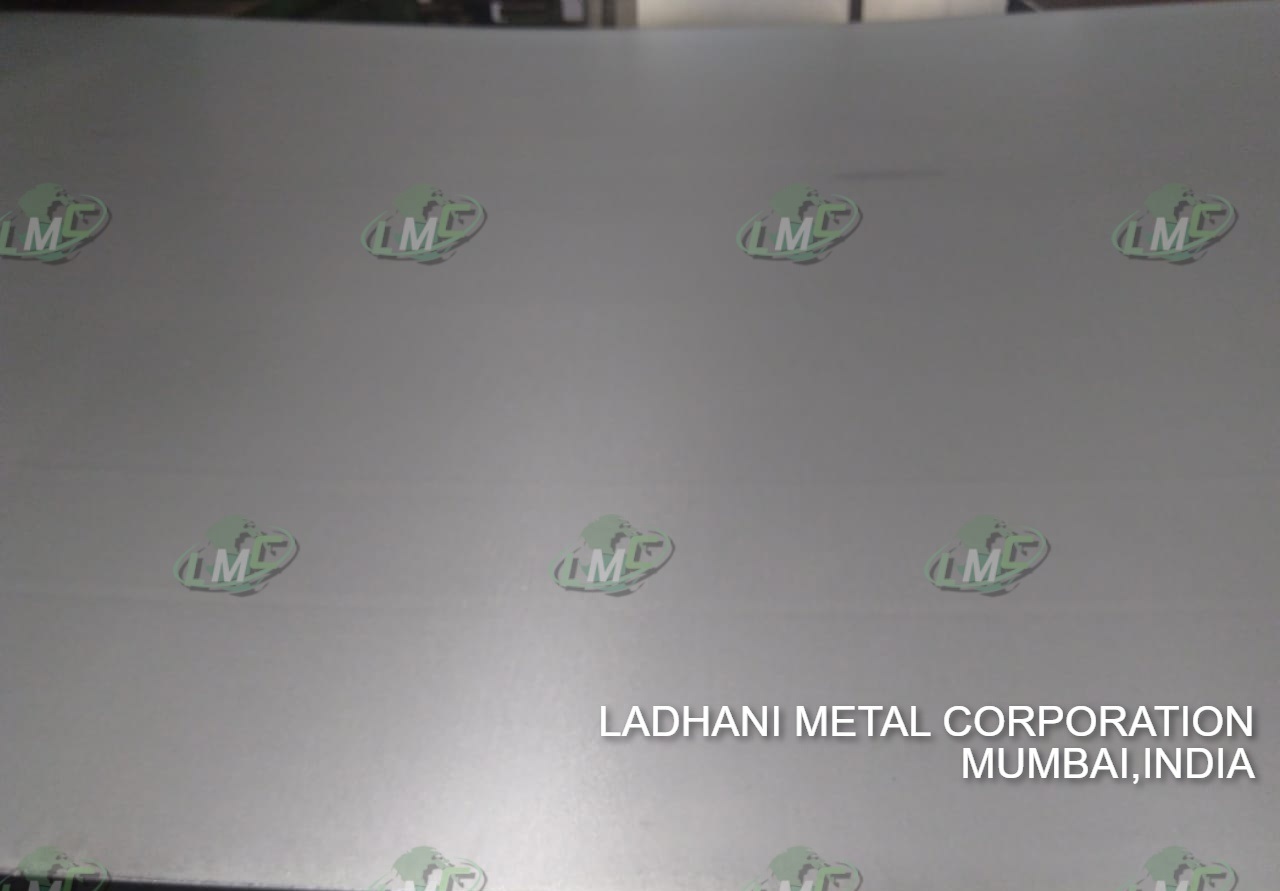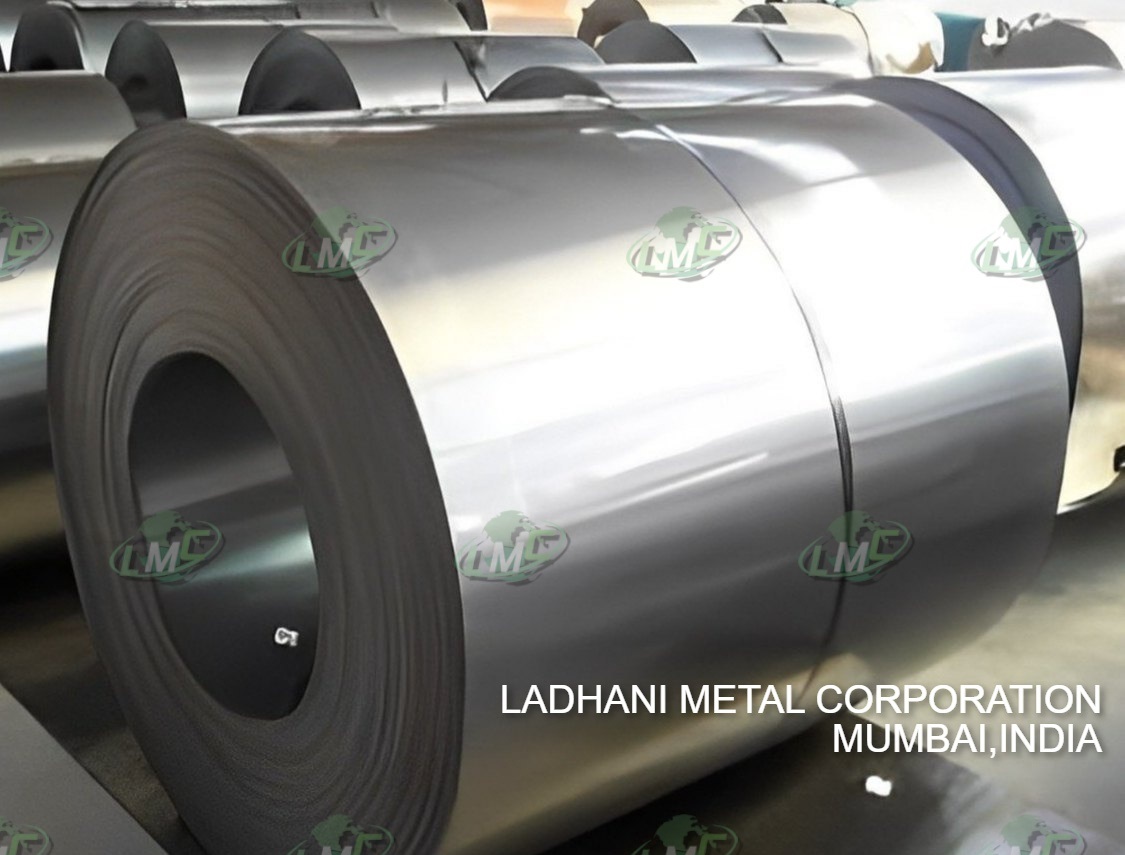Ladhani Metal Corporation, a manufacturer, supplier, and exporter, offers stainless steel sheets, plates, and coils in grade X04Cr19Ni9 as per IS 6911 specifications. X04Cr19Ni9 is an austenitic stainless steel grade, equivalent to international grade 304L, designed with low carbon content for superior resistance to intergranular corrosion after welding. It is widely used in applications requiring excellent corrosion resistance, weldability, and hygienic properties. Chemical Composition of X04Cr19Ni9 (as per IS 6911) • Carbon (C): 0.04% max • Manganese (Mn): 2.0% max • Silicon (Si): 1.0% max • Phosphorus (P): 0.045% max • Sulphur (S): 0.030% max • Chromium (Cr): 18.0% – 20.0% • Nickel (Ni): 8.0% – 10.5% Functions and Characteristics • Low carbon content prevents carbide precipitation during welding • Excellent corrosion resistance in oxidizing environments and mild chemicals • High toughness and ductility even at cryogenic temperatures • Good oxidation resistance up to 870°C in intermittent service • Non-magnetic in annealed condition, slightly magnetic after cold working • Excellent weldability and formability for complex structures Applications • Power Generation – Heat exchangers, condensers, and boiler components • Oil and Gas – Storage tanks, pipelines, and offshore platforms • Petrochemical Industry – Process equipment, reactors, and refinery units • Fertilizer Plants – Vessels and pipelines exposed to corrosive fertilizers • Chemical Industry – Tanks, piping systems, and corrosion-resistant reactors • Marine Engineering – Shipbuilding, seawater equipment, and offshore rigs • Automotive Industry – Exhaust systems, trims, and clamps • Food Processing – Hygienic processing machinery, storage tanks, and kitchen equipment • Construction – Architectural facades, roofing, and structural frameworks • General Engineering – Shafts, fasteners, household appliances, and machine parts Available Forms • Stainless steel sheets • Stainless steel plates • Stainless steel coils Grades Available under IS 6911 Apart from X04Cr19Ni9, IS 6911 also covers a wide range of stainless steel grades, including X04Cr12, X07Cr17, X12Cr12, X20Cr13, X30Cr13, X40Cr13, X15Cr16Ni2, X108Cr17Mo, X10Cr17Mn6Ni4N2O, X07Cr11Mn12Ni4, X10Cr18Mn9Ni5, X30Cr17Ni7, X07Cr18Ni9, X02Cr19Ni10, X15Cr24Ni13, X20Cr25Ni20, X04Cr17Ni12Mo2, X02Cr17Ni12Mo2, X04Cr17Ni12Mo2Ti, X04Cr18Ni10Ti, X04Cr18Ni10Nb and other specified grades. Conclusion IS 6911 SS X04Cr19Ni9 sheets, plates, and coils offered by Ladhani Metal Corporation, a manufacturer, supplier, and exporter, provide exceptional corrosion resistance and weldability, making them the preferred choice for applications in chemical, food, and marine industries. With availability in multiple grades as per IS 6911, we deliver stainless steel solutions that meet both domestic and international standards. For inquiries or project requirements, contact Ladhani Metal Corporation.
Send Message
